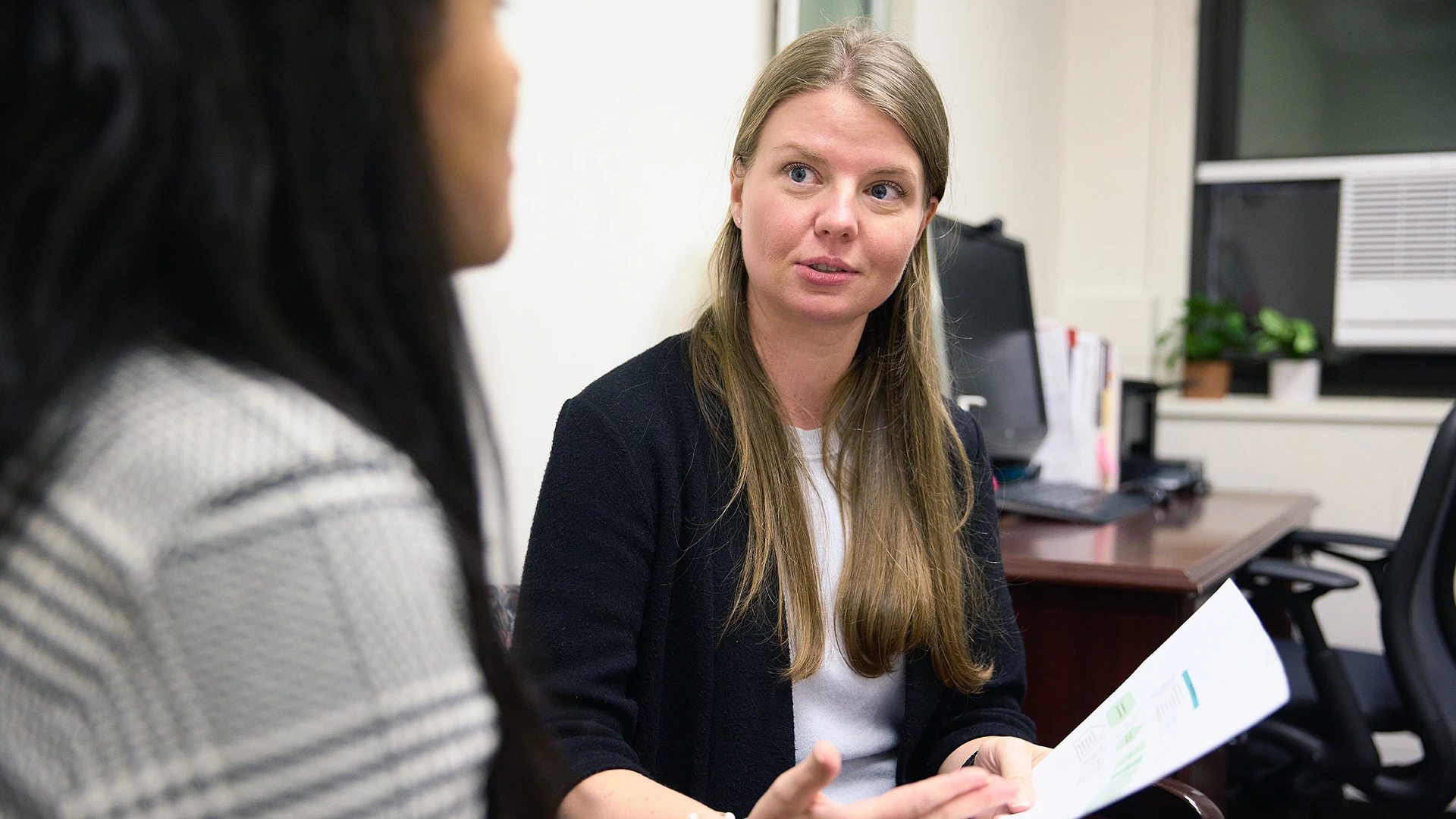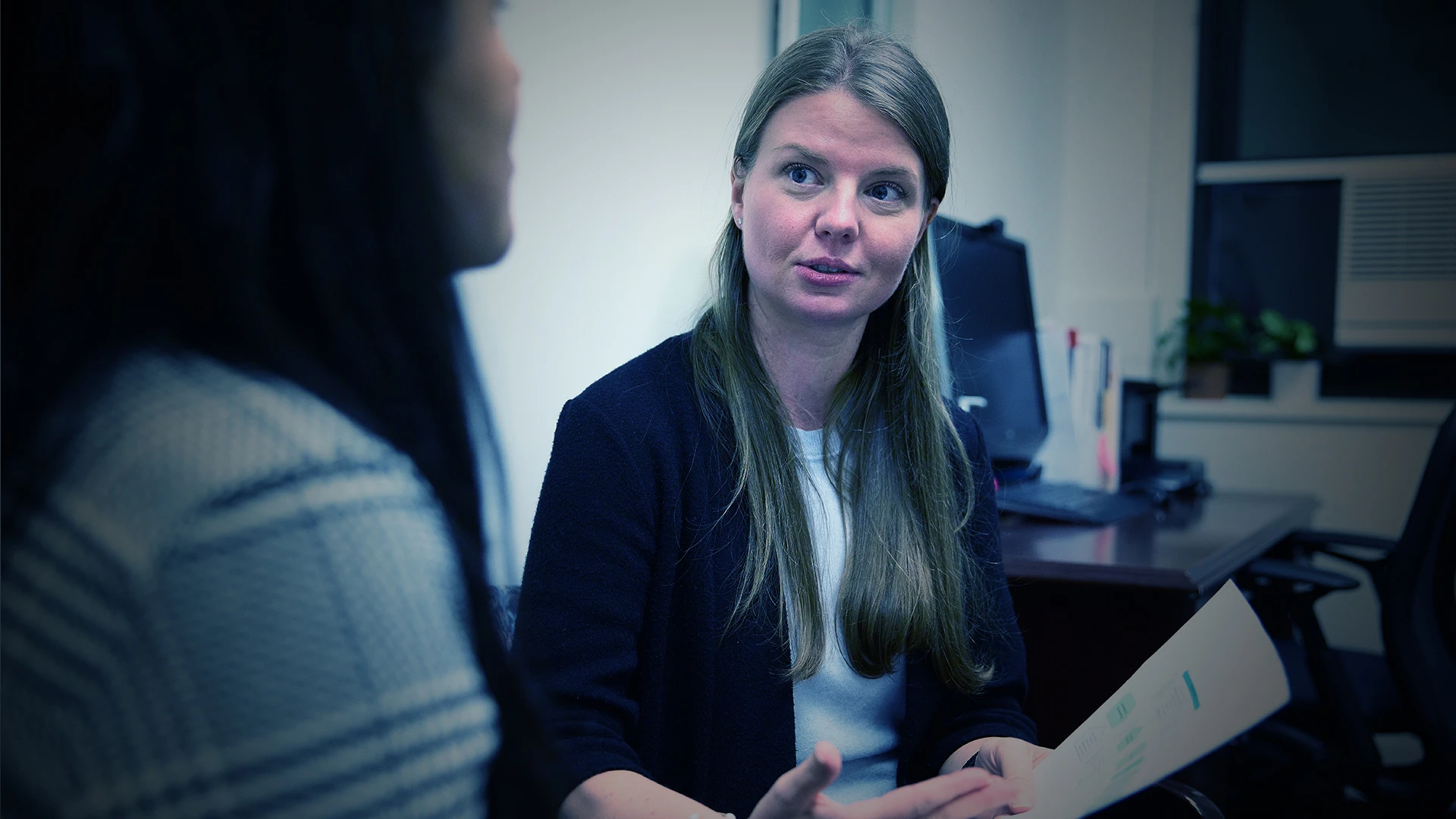Mount Sinai’s pioneering research on emotion dysregulation in people with traumatic brain injury (TBI) has entered the era of implementation science.
Neuropsychologist Maria Kajankova, PhD, Assistant Professor of Rehabilitation and Human Performance at the Icahn School of Medicine at Mount Sinai, and her team had conducted a randomized clinical trial comparing outcomes of an intervention for emotion dysregulation delivered via online videoconferencing with those of patients who were wait-listed and are preparing to submit the results for publication.
The group intervention, adapted from cognitive behavioral therapy (CBT) and delivered twice weekly for 12 weeks in one-hour sessions, was a “smashing success” in both interim and final analyses, says Dr. Kajankova.
In the meantime, Dr. Kajankova is taking an important next step of the research: investigating how clinicians in the real world can be effectively trained to deliver the online intervention and to identify barriers that might prevent them from doing so.

Maria Kajankova, PhD, had concluded a trial on a virtual intervention that helps individuals with traumatic brain injury address emotion dysregulation. That trial had succeeded, and now she has secured funding to ensure findings from that study can be effectively translated to therapists across the country.
“So now that we know this intervention works, we need to take the next step,” Dr. Kajankova says. “Implementation science”—a field that provides methods to help bring trial results into the real world—is increasingly viewed as important. “Funding agencies are now asking for these sorts of projects. Funders are less willing to pay for research to have it just sit on the shelf.”
The implementation study, “Community-based Implementation of an Emotion Regulation Intervention for Individuals with TBI,” or EmReg Implementation for short, began in 2022 and aims to enroll 50 participants. This includes mental health professionals, including licensed psychologists, social workers, or mental health counselors who have experience in CBT, providing group treatment, and working with individuals who have TBI. The study has been funded through 2027, and it, along with much of Dr. Kajankova’s work, has been supported by the U.S. National Institute on Disability and Dependent Living and Rehabilitation Research, part of the U.S. Department of Health and Human Services.
Participants will complete a three-hour pre-recorded training in the EmReg intervention, which includes two “experiential,” or mock, EmReg group sessions. Half of the participants will be randomized to additionally receive follow-up consultation sessions every other week for three months. After the training, the professionals will be asked to use the intervention in their clinical practices, and complete online surveys at six time points regarding their own progress, patient outcomes, and any barriers to implementation that arise.
50
targeted enrollment
2022-2027
planned study duration
Primary outcomes: therapists' self-efficacy in delivering the intervention
Secondary outcomes: uptake and patients’ emotional regulation outcomes
The primary aim is to better understand if and what training leads to clinicians feeling competent and confident in being able to deliver the intervention, says Dr. Kajankova. Secondary outcomes include uptake and patients’ emotional regulation outcomes.
This research is believed to be unique in the rehabilitation field, providing evidence related to effective training methods for clinicians in the community, and providing valuable information regarding facilitators and barriers to implementation of neurobehavioral intervention for individuals with TBI.
“We hope this will serve as a model for other people in this field for understanding what type of training is necessary to make clinicians feel ready to deliver the intervention in their own practice,” says Dr. Kajankova. “We are approaching the translation of the EmReg intervention systematically, using implementation science frameworks and hoping to find out what will make clinicians feel ready to go out and deliver it with confidence and competence.”
Featured

Maria Kajankova, PhD
Assistant Professor, Rehabilitation and Human Performance
